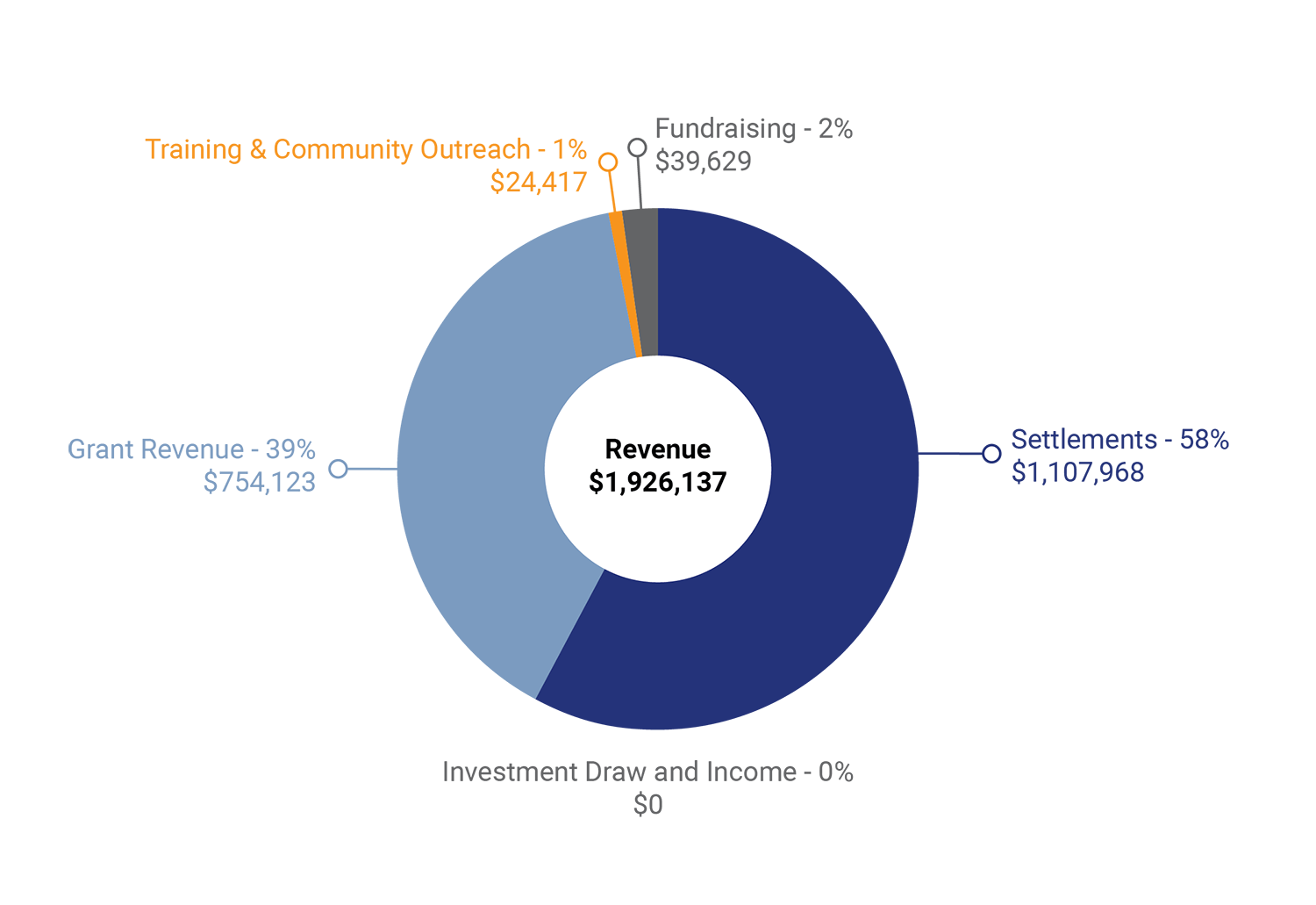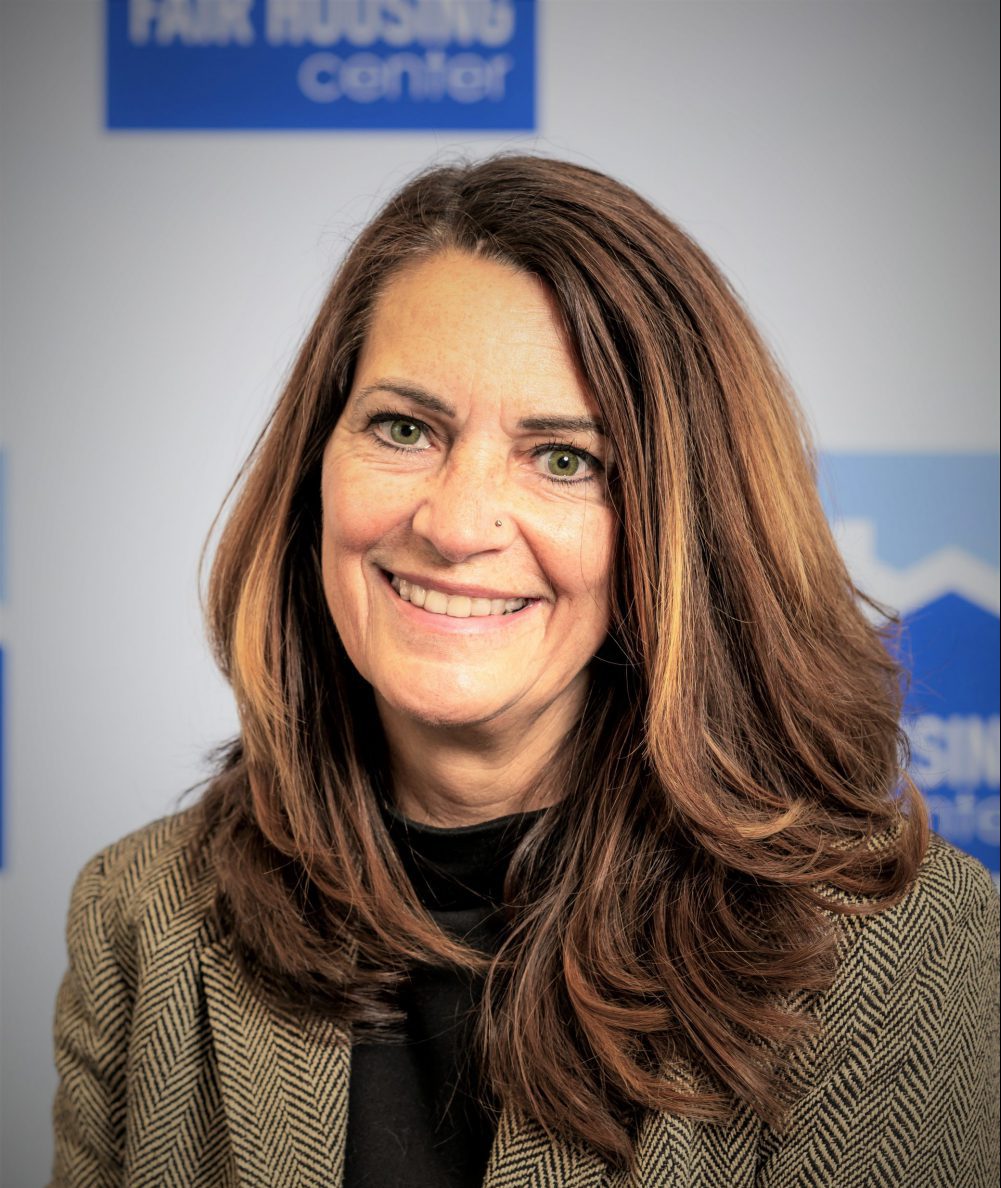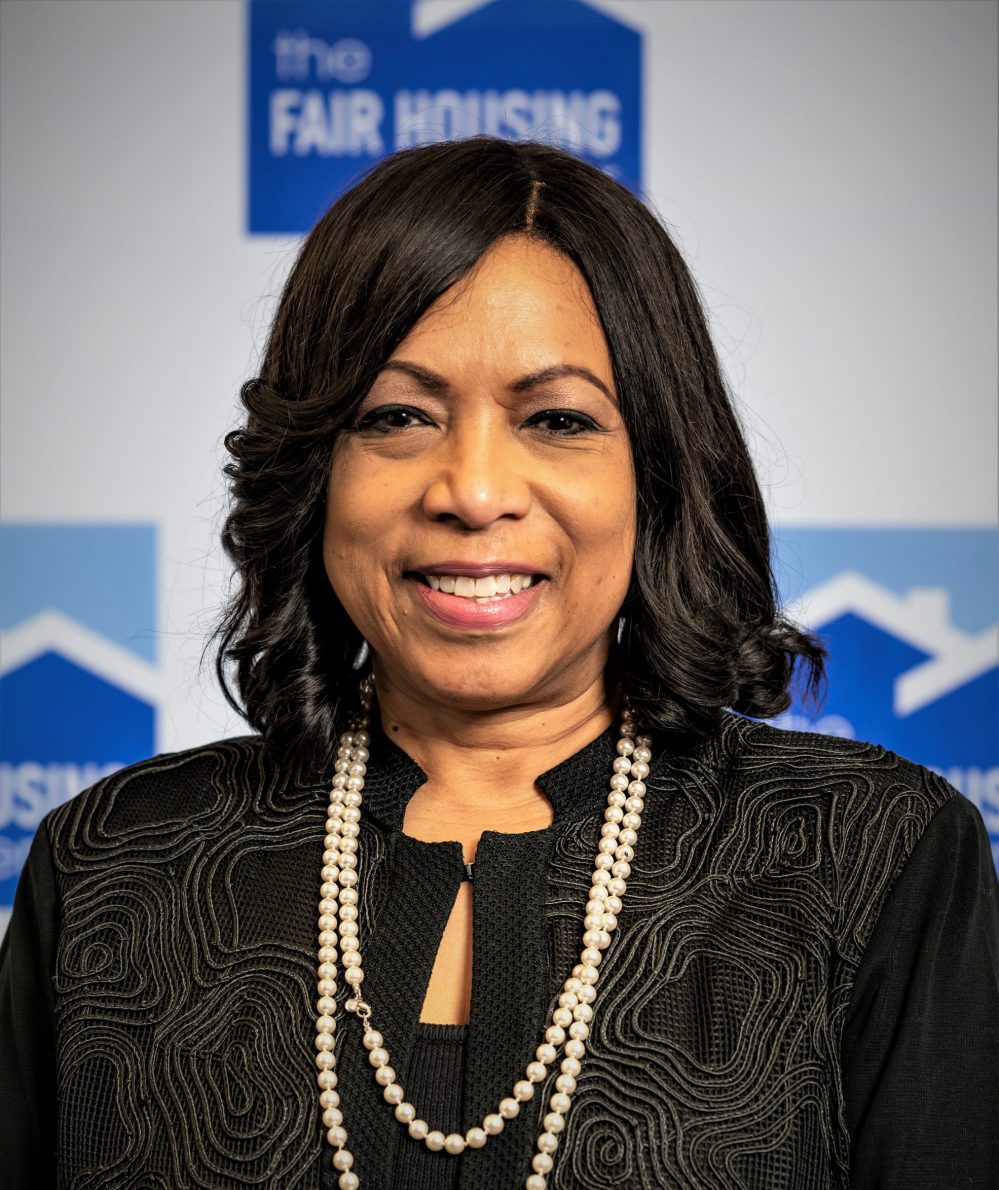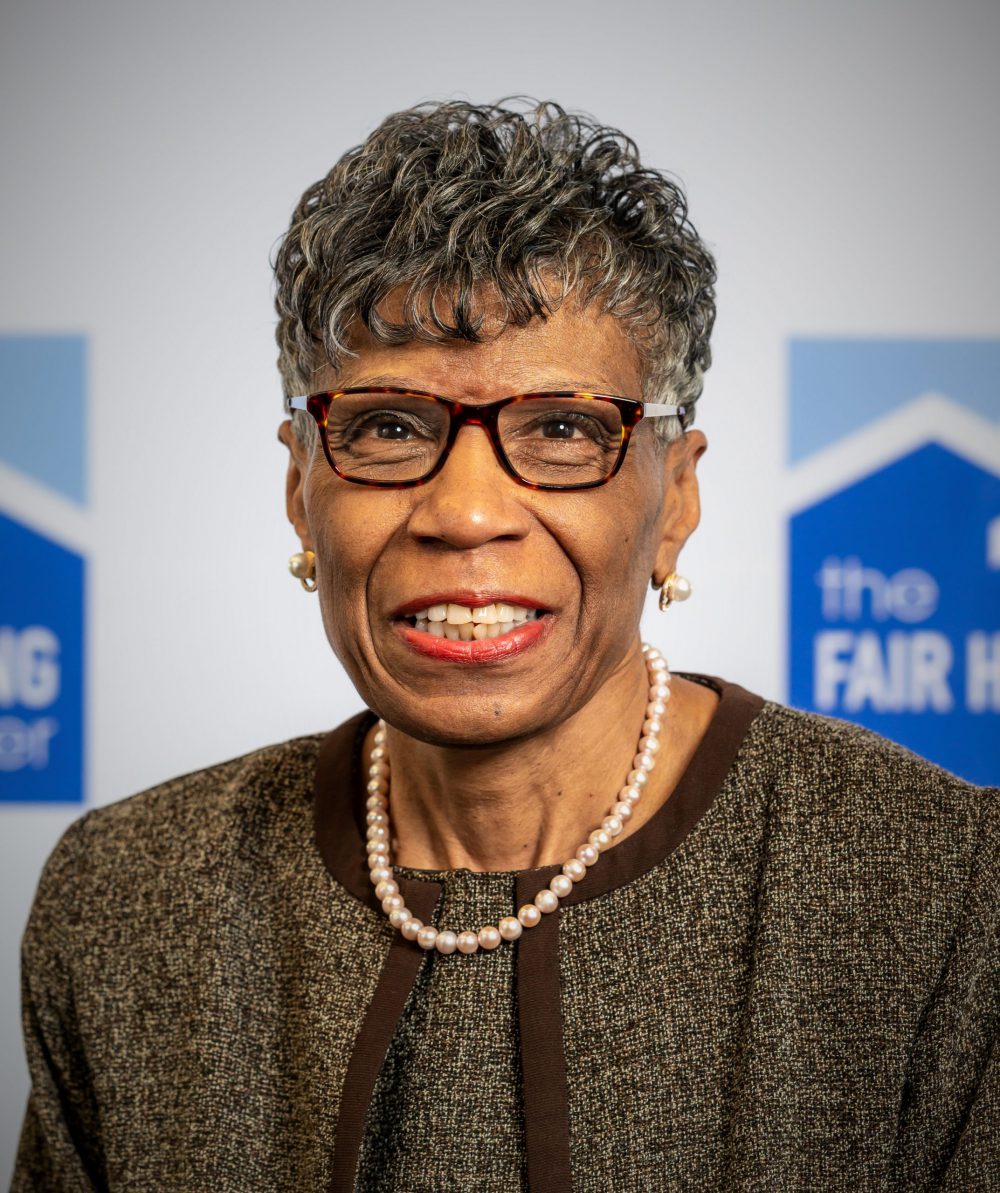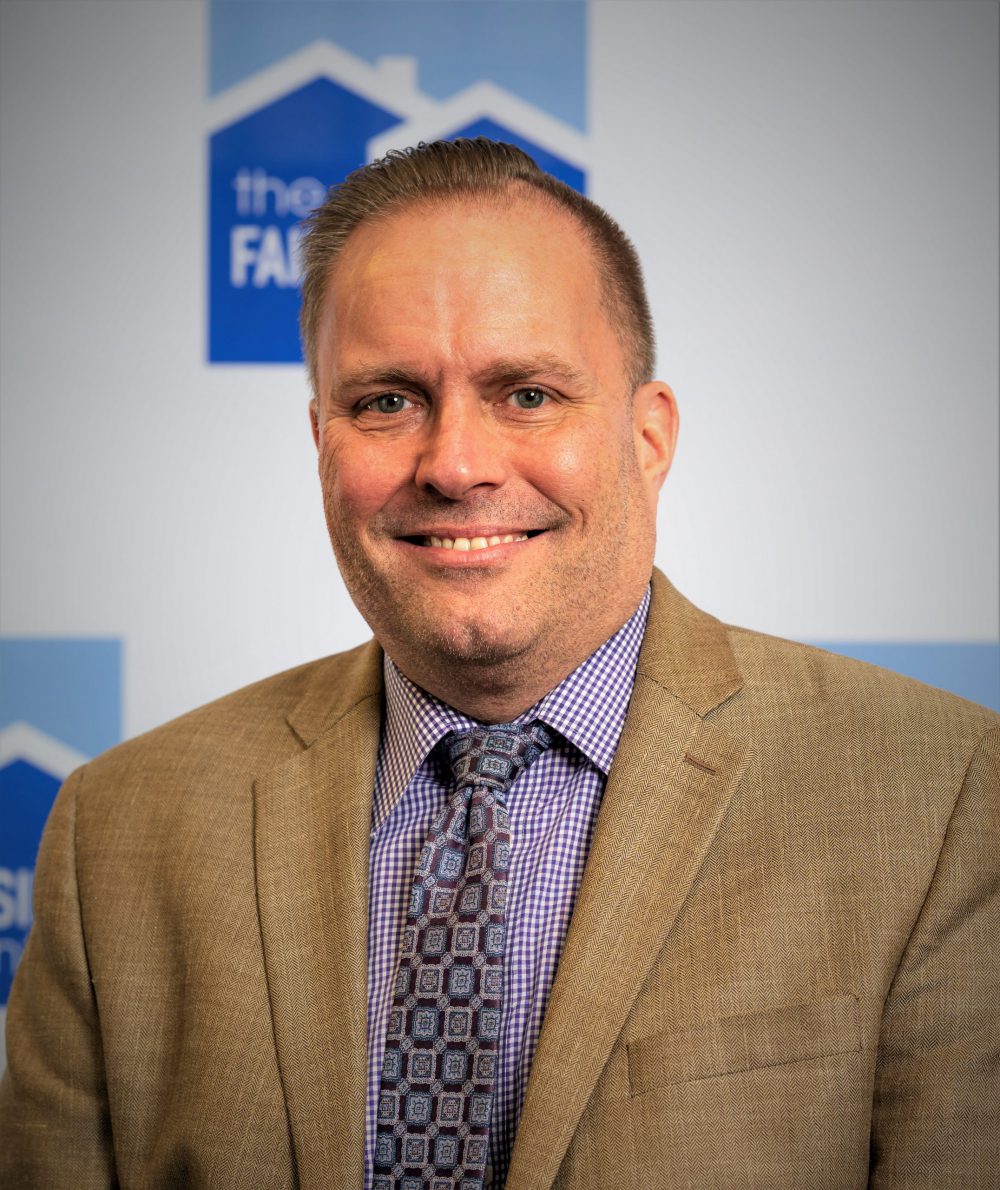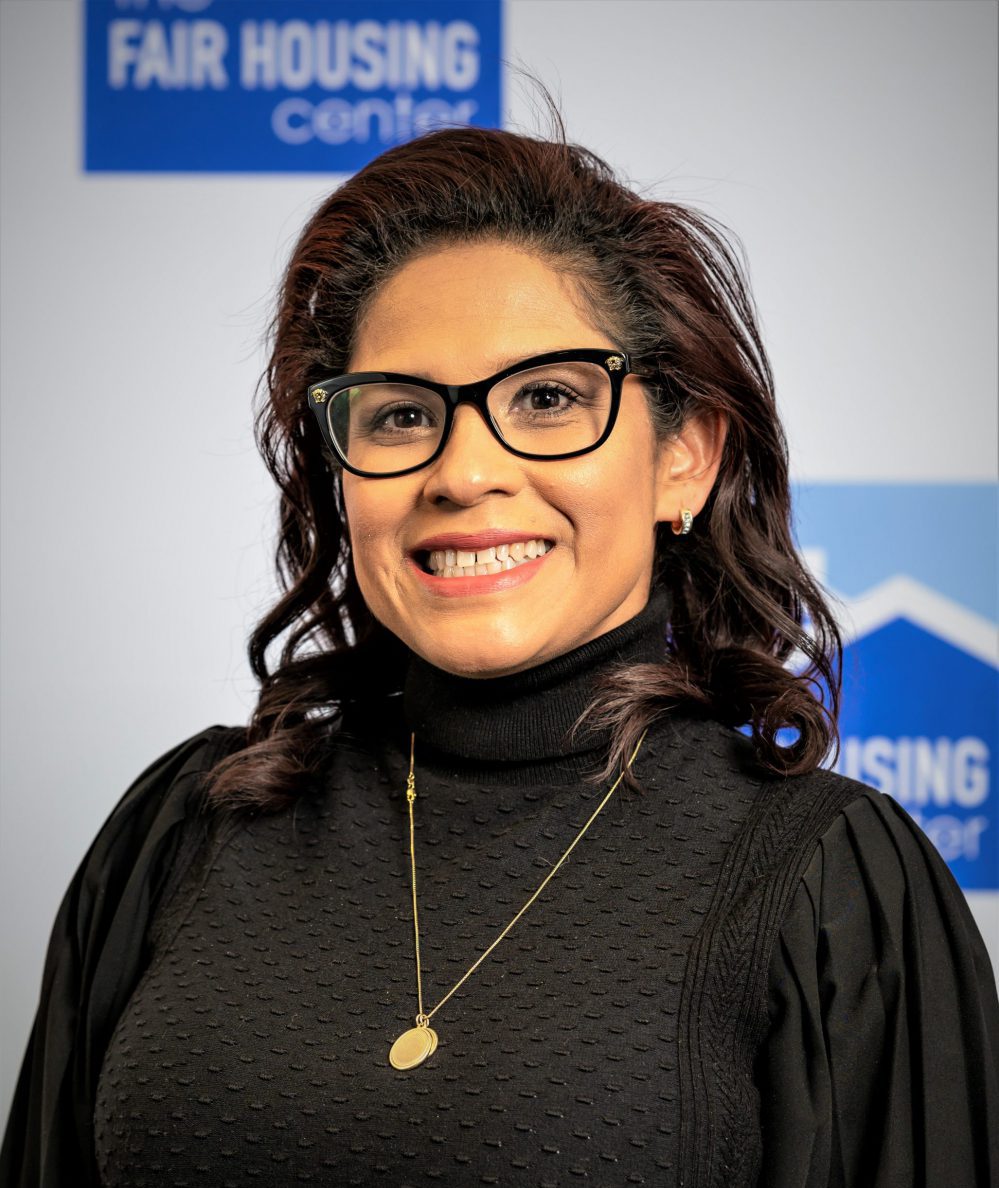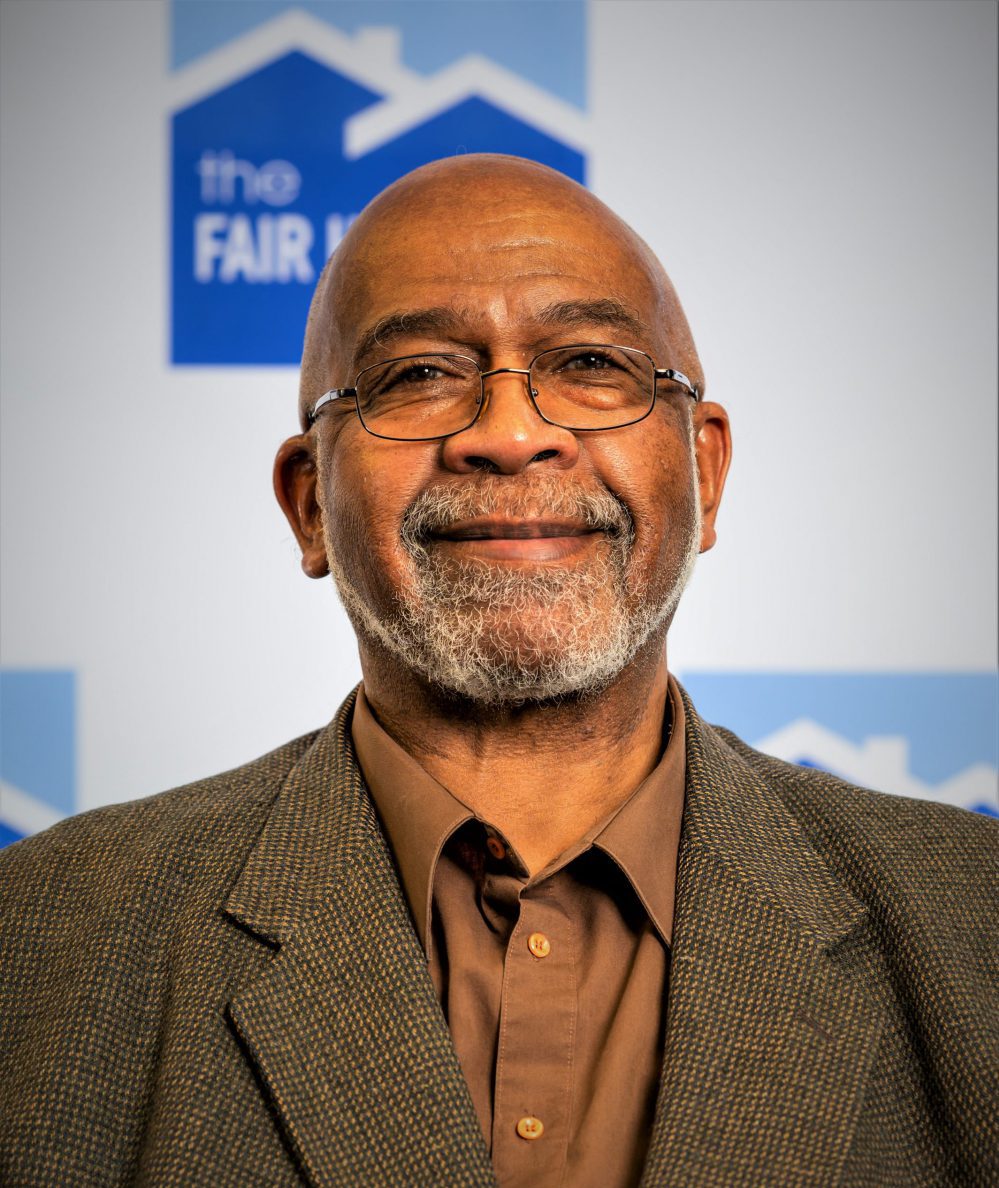No one should battle
housing discrimination alone.
Dear Friends of Fair Housing:
When The Fair Housing Center opened its doors in 1975, our founders envisioned an organization whose necessity would vanish within ten years. It stood to reason, in the wake of the 1968 Fair Housing Act’s enactment, that outlawing housing discrimination would quickly end segregation in America. But while the Act addressed fair housing in principle, achieving its objectives would prove challenging in practice.
The Act—and subsequent legislation meant to eliminate housing discrimination—primarily places the burden of enforcement on victims, whose only binding recourse in most matters is filing civil lawsuits for damages. But unlike housing providers, individuals who faced discrimination can rarely afford the legal representation required to prevail in such actions. As a result, the need for The Fair Housing Center continues to rise rather than lessen.
The Fair Housing Center’s vision statement calls on us to advocate, educate, and investigate—all crucial activities for promoting fair housing principles. But our vision also urges us to engage in enforcement efforts. So, while we work every day to prevent housing discrimination, it’s through enforcement that we improve realities for its victims.
In this year’s Annual Report, you can read about our recent enforcement successes on behalf of clients, as well as new and ongoing initiatives. And in the coming months, you will begin seeing and hearing new marketing messages promoting The Fair Housing Center’s role in holding accountable those housing providers who violate fair housing laws.
In a perfect world, no one would need to fight housing discrimination. Until that happens, we’re striving to ensure that no one has to face the battle alone.
We thank you for your support.

George Thomas
President and CEO
Enforcing Housing Rights
Housing discrimination continues to harm communities and negatively impact individuals. Enforcing the Fair Housing Act is the bedrock of our advocacy, and our Enforcement team works tirelessly to protect your rights. Two landmark cases stood out in 2022.
In 2022, The Fair Housing Center and eleven other fair housing organizations settled a federal civil rights lawsuit against the Clover Group totaling $7.1 million.
The plaintiff organizations alleged that Clover—a group of senior housing owners, investors, and operators—failed to comply with the Fair Housing Act’s design and construction accessibility requirements. The Act requires multifamily housing of four or more units built for initial occupancy on or after March 13, 1991, to be accessible to wheelchair users and individuals with other physical disabilities.
During a multiple-year joint investigation of the Clover Group, fair housing organizations in six states identified alleged violations of the Act’s requirements. In March 2022, they filed a lawsuit in the U.S. District Court for the Northern District of New York. Several of the organizations are also plaintiffs in a related case that accuses Clover entities of engaging in other forms of disability discrimination, such as refusing to grant reasonable accommodations and imposing surcharges for accessible units.
Under the settlement, Clover will spend approximately $3 million to retrofit public and common-use areas at its properties to improve accessibility for individuals with disabilities. That includes providing accessible routes around the exterior and common areas, adding additional ramps and curb cuts, and replacing sidewalks having excessive slopes.
The settlement also requires Clover Group to set aside $3.375 million to pay for modifications to individual units requested by any resident or applicant at the properties included in the agreement.
Clover Group will pay $750,000 to the fair housing organizations to compensate them for staff time and other resources expended to investigate the alleged violations and for attorneys’ fees. Additionally, any Clover Group employees involved in designing and constructing multifamily housing will complete training on the Fair Housing Act’s accessibility requirements.
“Fair housing applies to all aspects of the housing industry, including design and construction,” says The Fair Housing Center’s Marie Flannery. “Builders and developers are responsible for complying with accessibility requirements, ensuring people with disabilities and those who are aging in place can find housing that meets their needs.”
The settlement will improve access for persons with disabilities at fifty senior apartment buildings across the Northeast and Midwest. Properties in Northwest Ohio include Kings Pointe Senior Apartments in Sylvania and Simmons Crossing Senior Apartments in Rossford.
Also, in 2022, The Fair Housing Center, the National Fair Housing Alliance (NFHA), and nineteen other fair housing organizations reached a $53 million settlement with Fannie Mae.
The landmark settlement resolves a longstanding case involving allegations that Fannie Mae maintained foreclosed homes in communities of color unfavorably to those in predominately White neighborhoods.
The Fair Housing Center and other plaintiff organizations conducted a four-year investigation involving more than 2,300 foreclosed properties Fannie Mae owned in dozens of metropolitan areas throughout the country, including Toledo. The groups collected more than 49,000 photographs documenting the disparities in maintaining properties in Black and Latino communities and predominately White neighborhoods.
The settlement has far-reaching implications for the communities involved in the case. The plaintiff organizations will invest most of their settlement proceeds into the communities harmed by Fannie Mae’s alleged conduct. More than $35 million of the settlement will go toward promoting home ownership, neighborhood stabilization, credit access, property rehabilitation, and residential development.
“The neglect of foreclosed properties contributed to blight, decreased property values, restricted access to homeownership, and depleted wealth in Toledo’s neighborhoods of color, perpetuating longstanding housing inequities,” says Marie Flannery. “This effort brings us one step closer to ensuring everyone in our community, regardless of their ZIP Code, can find safe, stable places to call home.”
Since its founding, The Fair Housing Center has operated as one of the most progressive and effective proponents of fair housing, leading national efforts and setting precedents that have markedly improved the quality of life for millions of Americans.
REPORT HOUSING DISCRIMINATION HERE.
Advocacy
As a visible advocate for victims of housing discrimination, The Fair Housing Center challenges systemic causes of bias and gives those affected a more prominent voice in public policy.
Auditor’s Office steps up rental registration enforcement.
Since 2006, Ohio law has required rental property owners in heavily populated areas to register in-state holdings with their county’s auditor and provide contact information for a local representative. Lucas County’s current rental registry includes nearly 18,000 parcels. However, using data from the 2020 census, The Fair Housing Center estimates that the number of registered units should be closer to 80,000. An incomplete registry makes it challenging for many renters to reach their housing providers when necessary.
The Fair Housing Center has long advocated that Lucas County enforce rental registration requirements. Compliance would make it easier to hold property owners accountable for housing discrimination, lead regulations, and other landlord-tenant issues.
We’re happy to report that the Lucas County Auditor’s Office has begun fining housing providers who fail to register their properties. Those not registering will have $150 added to their property tax bill every six months. In addition, the Auditor’s Office is hiring a three-person staff to coordinate rental registration.
Auditor Anita Lopez said recent conversations with The Fair Housing Center leaders helped her realize the need to prioritize registration enforcement. “When you don’t issue a fine, then it perpetuates the lack of importance of tenants,” she explained.
“I’m really happy that the Auditor is now moving forward with enforcement,” said George Thomas, The Fair Housing Center’s Vice President and General Counsel.
Enforcing registration in a rental housing market dominated by anonymous corporations and out-of-state investors will help ensure greater landlord accountability.
Advocating for fair zoning policies.
The City of Toledo’s zoning policy subjects group living facilities to stricter rules than most similarly sized households. For example, mental health and substance-dependency treatment facilities and halfway houses with ten or more residents must obtain special-use permits, even in locations where apartment buildings would receive automatic approval. And acquiring permits can take as long as four months.
By restricting housing opportunities for people with mental or physical disabilities, the City’s current policy violates the Fair Housing Act.
Throughout 2022, The Fair Housing Center collaborated with the City Plan Commission, the Ability Center of Greater Toledo, Advocates for Basic Legal Equity (ABLE), and the Mental Health and Recovery Services Board of Lucas County on a proposed policy amendment aimed at streamlining approval and easing restrictions. The proposed amendment would eliminate the unequal requirements and allow group living facilities anywhere similarly sized housing is permitted.
While involved in the proposed amendment’s development, The Fair Housing Center believes parts remain overly restrictive and reinforce stigmas about mental health and addiction. Under the proposal, residential facilities of all sizes licensed under the Ohio Department of Mental Health and Addiction Services must be on what Toledo and Lucas Count define as “major” streets. Moreover, group living facilities must be at least 500 feet apart and on different blocks. Halfway houses must be 2,000 feet apart.
“It’s problematic for a number of reasons,” says The Fair Housing Center’s George Thomas. “You’re likely to have a more difficult time integrating into the community if you happen to be on the main road as opposed to integrated throughout the community.”
The Fair Housing Center has proposed a revision to the amendment.
The Toledo City Council continues to consider the proposed policy amendment.
Financials
$0.88 of every dollar is spent DIRECTLY on programs.
Fair Housing Opportunities of Northwest Ohio, Inc. (FHONO) received approximately 39% of its revenue from federal, state, and local grants. We use those grants to fund the enforcement of fair housing laws, educational programs, outreach, various investigation activities, and staff development. Settlements generated 58% of this fiscal year’s revenue. Training & Outreach activities produced 1% of revenue, while Fundraising accounted for 2%.
Wages and fringe benefits account for most operating expenses at 59%. Other Operating Expenses (i.e., costs of supplies, staff training, advertising and outreach, and third-party consulting fees) represent 22%. Building Expenses (the cost of maintaining our building) are 4% of the total, while fundraising activities represent 12%. With the fluctuations in the economy and other portfolio costs, there was a net cost to investments, accounting for 15% of total annual expenses. For the fiscal year ending June 30, 2022, revenue exceeded expenses by $148,327.
Your tax-deductible contributions to The Fair Housing Center help us fight housing discrimination.
Our impact by the numbers.
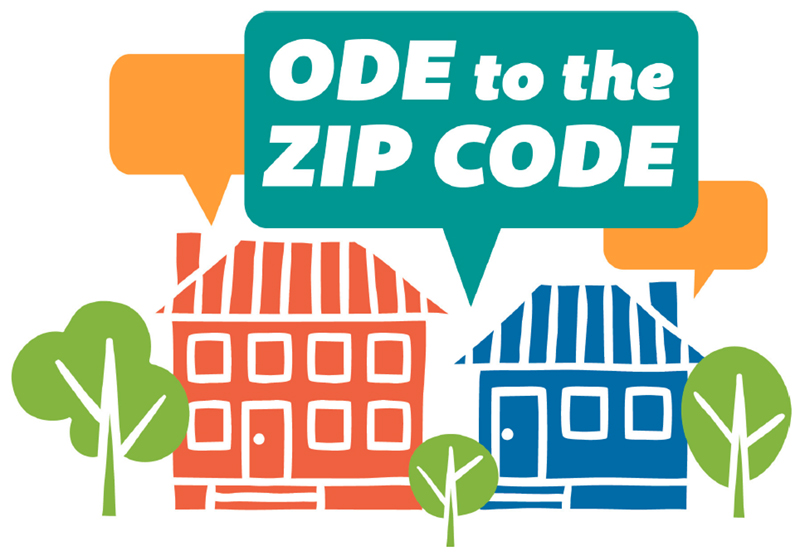
For the seventh year in a row, The Fair Housing Center, The Arts Commission, Toledo Lucas County Public Library, Toledo City Paper, and Toledo Area Parent partnered to host Ode to the ZIP Code. The annual free poetry competition invites Toledo area residents to submit short poems inspired by their ZIP Codes, where the number of words in each line of the poem is determined by the corresponding digit in their ZIP Code.
This year’s winners are listed here.




YOUTH
(Ages 11 and under)
1st Place
AMINAH ALGENDY, 43606
4 Ottawa Hills Elementary School
3 Schools Rarely Close
6 But when it actually does close
0
6 We have fun at sledding hill
2nd Place
MUHAMMAD ALGENDY, 43606
4 My friends are fun
3 We love playing
6 At the park and big field
0
6 We also love to go sledding
3rd Place
XAVIER OTTING, 43560
4 Olander parks are fun
3 Libraries are cool
5 Hockey is my favorite sport
6 I like swimming in the pool
0
YOUNG ADULT
(Ages 12 through 17)
1st Place
MAYA FILLION-RITCHIE, 43620
4 Old West End Investigators
3 watched out windows,
6 binoculars pressed firmly on frozen glass.
2 Looking, listening
O (for loose crumbs)
2nd Place
JAMES NAUDEN, 43607
4 Pale frost stricken net.
3 Backboard crackling as
6 wintery knives dive from its bottom
0 (onto a barren court).
7 Mimicking sounds of our flat discolored ball.
3rd Place
ALAYA HUDDLESTON, 43610
4 sunrise shines dirty windows,
3 kittens hoppin fences,
6 bikes with radios ride down avenues,
1 morning
0
ADULT
(Ages 18 and older)
1st Place
MARIAH HORTON, 43608
4 Four abandoned houses nearby
3 Three wrecking balls
6 Six neighbors breaking in new soil
0 Zero (abandoned houses)
8 Eight garden beds bringing food security to us
2nd Place
MASON MICHALAK, 43612
4 The raccoon trots over
3 worn, broken asphalt
6 raised by thick tree roots and
1 into
2 the sewer
3rd Place
Hunter (Huntorprey) Turner, 43604
4 Heart of the city
3 Art Tatum’s space
6 Blending church steeples and skyscrapers alike
0
4 Holy Toledo begins here
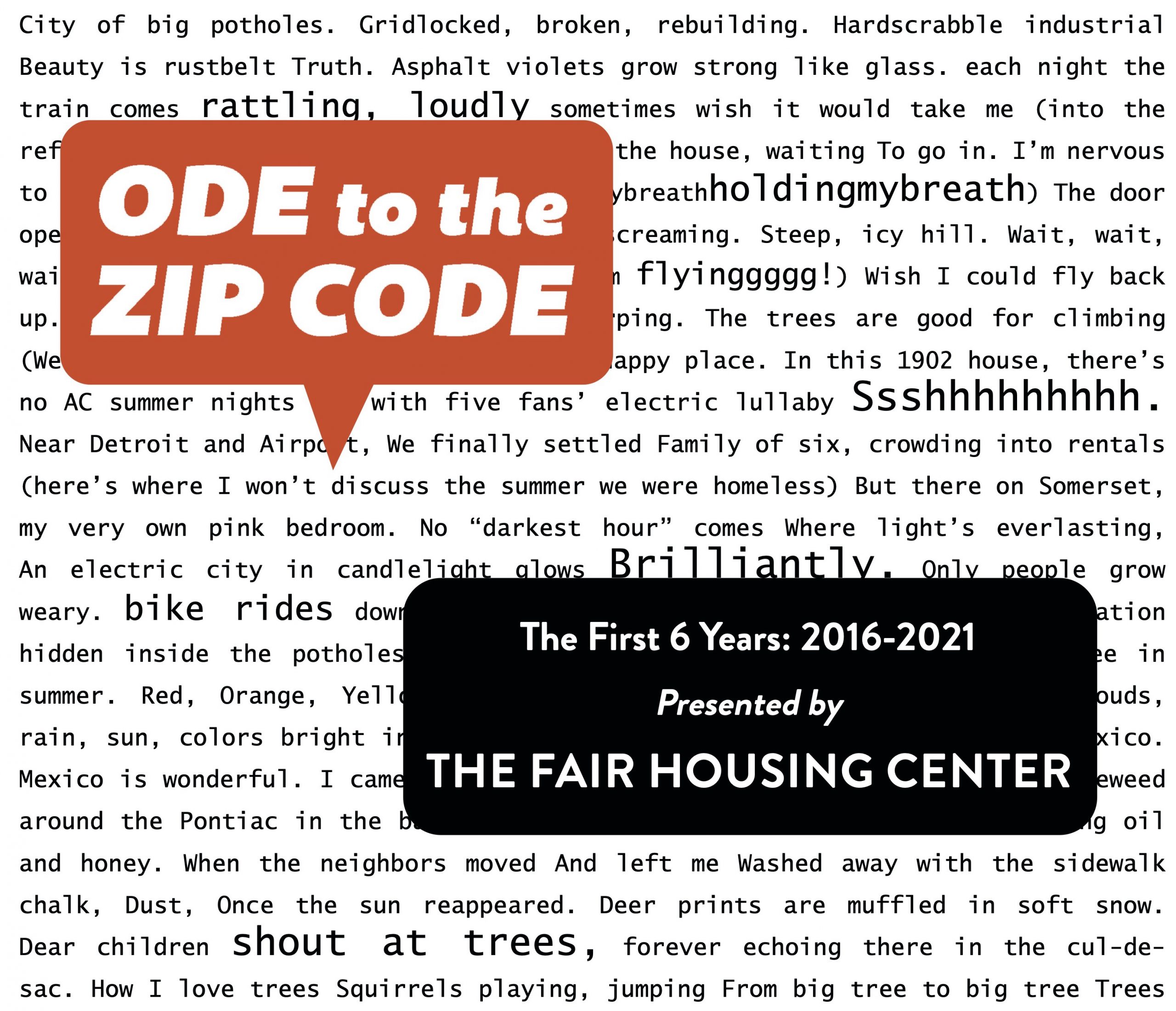
Staff News
Housing Conditions and Neighborhood Reinvestment Attorney added to staff.
The Fair Housing Center added a vital new staff position this year: Housing Conditions and Neighborhood Reinvestment Attorney. The attorney will assist our clients with housing condition complaints and landlord-tenant disputes and perform neighborhood reinvestment advocacy.
Christina Rodriguez assumed the new position in November. She previously worked as The Fair Housing Center’s senior attorney.
The Fair Housing Center receives more requests for assistance with blight and poor housing conditions than any other call. Our mission demands that we respond to those complaints as they arise. Neighborhoods that encountered redlining in the 1930s and historic and ongoing disinvestment often bear the worst housing conditions.
Society must hold those who prey on these communities accountable, and adding the position will further this crucial part of our mission. We consistently observe that tenants who pursue advocacy on their own, through rent escrow cases or otherwise, only succeed with legal representation.
Meanwhile, the landscape of landlord-tenant relationships is steadily becoming more litigious. With Toledo’s population shifting from homeowners to tenants, local and state laws, policies, and regulations are evolving to address this demographic change. With assistance from Ms. Rodriguez, our clients will achieve better legal outcomes.
In addition to those issues, Ms. Rodriguez will focus on neighborhood reinvestment through Community Reinvestment Act advocacy, meeting with local banks to champion better loan products, grants, and investments to address housing conditions in neighborhoods of color.
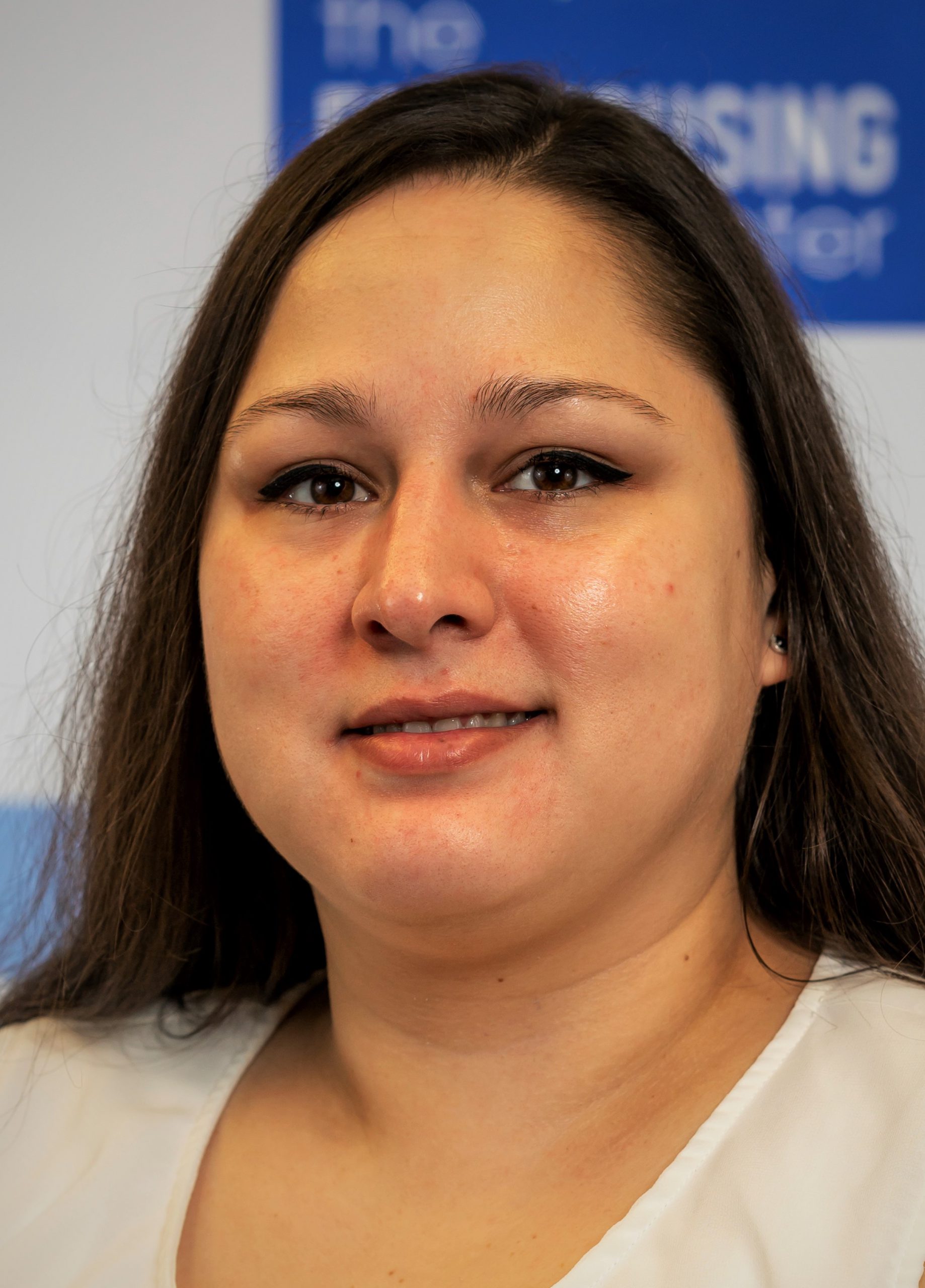
2022 DONORS
Thanks to our generous donors, The Fair Housing Center can provide the education, advocacy, and enforcement needed to prevent housing discrimination. Together we are creating inclusive communities of opportunity.
BRONZE
$2,500 - $4,999
Elaine Sheehan
Patty Wise
WTOL Channel 11
COPPER
$1,000 - $2,499
Advocates For Basic Equality (ABLE)
Timothy Croak
Mike Fehlen
Michael and Marie Flannery
Bruce and Sena Friedman
Legal Aid of Western Ohio, Inc.
Mutual Development Co., Inc.
Premier Bank
Alan and Lisa Sattler
Student Bar Assoc. University of Toledo
Taylor Kia
Toledo Building Services
CHAMPION OF FAIR HOUSING
$500 - $999
The Ability Center of Greater Toledo
The Anderson’s
Jacqueline Banks
Buckeye Broadband
Burkett Restaurant Equip & Supply
Butler Capital
Annette Cieslukowski
Farmer’s Merchant State Bank
Sarah Jenkins
LaPrensa
Lucas Metropolitan Housing
Northwest Ohio Realtors
ProMedica
Toledo Area UAW, CAP
Toledo Unit NAACP #3204
Ernest Walker
FAIR HOUSING ADVOCATE
$100 - $499
Rebecca Vinet Ackner
Denise Alvarado
Alan Bannister
Kathleen Burns
Pamela Byrd
Donnetta Carter
Christopher Lamont Cosper Foundation, Inc.
Clarios
Zahra Collins
Bishop Robert A. Culp
Kimberly Dixon
Equilibrium ADR
First Church of God
Marc Folk
Jeff Fortney
Francis Frey
Georgio’s International Cafe, Inc.
Juanita Greene
Larry Griffin
Gina Gueli
Steve and Pat Hamilton
Dylan Hawkins
Wendi Hendricks
Ink and Iron Maumee, LLC
Debbie Riley-Jackson
Keith Jordan
Jupmode
Norma King
Tom Luettke
John Meeks
Paula Nowicki
Eric and Melissa Pfeffinger
James Potter
Joan Rauh
Devon J. and Marisha Peace Raymond
Jennifer A. Rayoum
Christina Rodriguez
Hunt and Cherie Sears
Serenity Realty
David Shanahan
Linda Skowronek
Cheryl Slack
Robert and Gloria Smith
Eileen Stanbery
George Thomas
Toledo Neighborhoods Together
Everett (Tony) Totty
Dimitar Trapevski
Lisa VanDootingh
Mary-Thom Williams
FRIENDS OF FAIR HOUSING
Up to $99
Lisa Banks
Candace Bishop
Meg Bourland
June Boyd
Eddie Campos
Jacob Clapsaddle
Jennifer Collins
Ms. Clara Colvin
Nina Corder
Suzette Cowell
David Dalton
Democratic Women in Action
Willie Edwards
Robert Felix
Anika Fields
Joshua and Andria Fournier
Michaelene Gorney
Lavada Griswold
Lynn Hammerstrom
Tariq Hardiman
Tanya Jensen
Audrey Johnson
Dick Kaverman
Darlene Kiefer
Lisa Kohler
Kelly Latz
Allison Luce, LLC
Fernando Machado
Ann Mahon
Christopher Marsrow
Michael McCarthy
Dr. Donald Perryman
Karen Relyea
David Riethmiller
Patricia Robb
Andrew Robins
Todd Roth
Delise Simmons
Charletta Slaughter
Chris Stewart and Wendell Stewart
Carla Thomas
Shalonda Thurmond
Roberto Torres
United Way of Greater Toledo
Dametris Ross-Voet
Rhonda Wheeler
Lisa Garry-Wilson
Stephanie Wittebort
Karen Baker-Zepf
